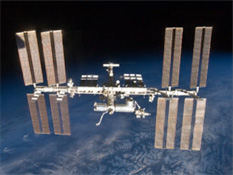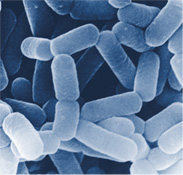Yakult Honsha, JAXA to Start Joint Research Regarding
Study of the Effect by Probiotics on Human Immune Function and Gut Microbiota in a Microgravity Environment
March 19, 2014 (JST)
Yakult Honsha Co., Ltd.
Japan Aerospace Exploration Agency (JAXA)
Yakult Honsha Co., Ltd. (President: Takashige Negishi; hereinafter referred to as "Yakult") and Japan Aerospace Exploration Agency (President: Naoki Okumura; hereinafter referred to as "JAXA") today announced that the two parties reached an agreement to start a joint research in the International Space Station (hereinafter referred to as "ISS") from April 2014.
- Name of the joint research
Study of the effect by probiotics on human immune function and gut microbiota in a microgravity environment - The period of the joint research
From 2014 to 2020 (provisional) - Significance of the joint research
To contribute to the health care of astronauts and the development of life science in the coming space age by scientifically studying the effect by probiotics on human immune function and gut microbiota of astronauts, who stay in space for long periods. It is also aimed at making contributions to promote people's health in general by utilizing the knowledge thus gained in the joint research for development of probiotics research on the ground. - Key research items
(1) Scientific study of Study of the effect by probiotics on human immune function and gut microbiota in a microgravity environment in a confined microgravity environment (space)
(2) Assessing the on-board safety, operability of live bacteria (Lactobacillus casei strain Shirota) and acquisition of related technical knowledge
|
|
Reference
[Background of this joint research]
In February 2012, Yakult participated in the Kibo Utilization Forum established for promotion of utilization of the Japanese Experiment Module known as "Kibo" on ISS, and formed the Intestinal Environment Improvement Research Group. The research group's aim was to study the effect, in space, of lactic acid bacteria which has been proved to improve the intestinal environment and restoration and retention of immunity on the ground. In the process, Yakult approached JAXA about the possibility of conducting a joint research in this field.Meanwhile, JAXA had established a space medical biology laboratory in April 2007 and has been carrying out medicine research aimed at astronauts as well as life science research targeting all life forms. Astronauts work in space, which is an extreme working environment of microgravity inside a closed spacecraft, and they are known to experience deterioration of immune function as well as bone density and muscular atrophy. In order to ensure a successful manned space flight, it is necessary to maintain the mental and physical health of the astronauts to enable them to fully demonstrate their capability. As one of the measures to tackle such issues, JAXA has been examining utilization of functional space food incorporating probiotics* among other ingredients. Space development organizations in other countries are also about to embark on similar research.
(*Probiotics: Live microorganisms which when administered in adequate amounts confer a health benefit on the host (FAO/WHO, 2001))
For these reasons, Yakult and JAXA reached an agreement to embark on the joint research on probiotics in humans in space ahead of other countries.
The joint research is aimed at scientific examination of the influence of continuous consumption of probiotics (Lactobacillus casei strain Shirota) on the immune function and gut microbiota of astronauts stationed at ISS for a long period. We are also aiming to expand its scope to study how the impact of probiotic changes in outer space. The joint research, which combines the expertise Yakult has acquired over the years in gut microbiota research with JAXA's space biomedical research -related knowledge and laboratory technique in space, aims to not only allow astronauts to demonstrate their capabilities to the full extent but also contribute to the advancement of space medicine, often termed as ultimate preventive medicine, which is also expected to be applied on the ground.
 International Space Station (ISS) |
 Lactobacillus casei strain Shirota |